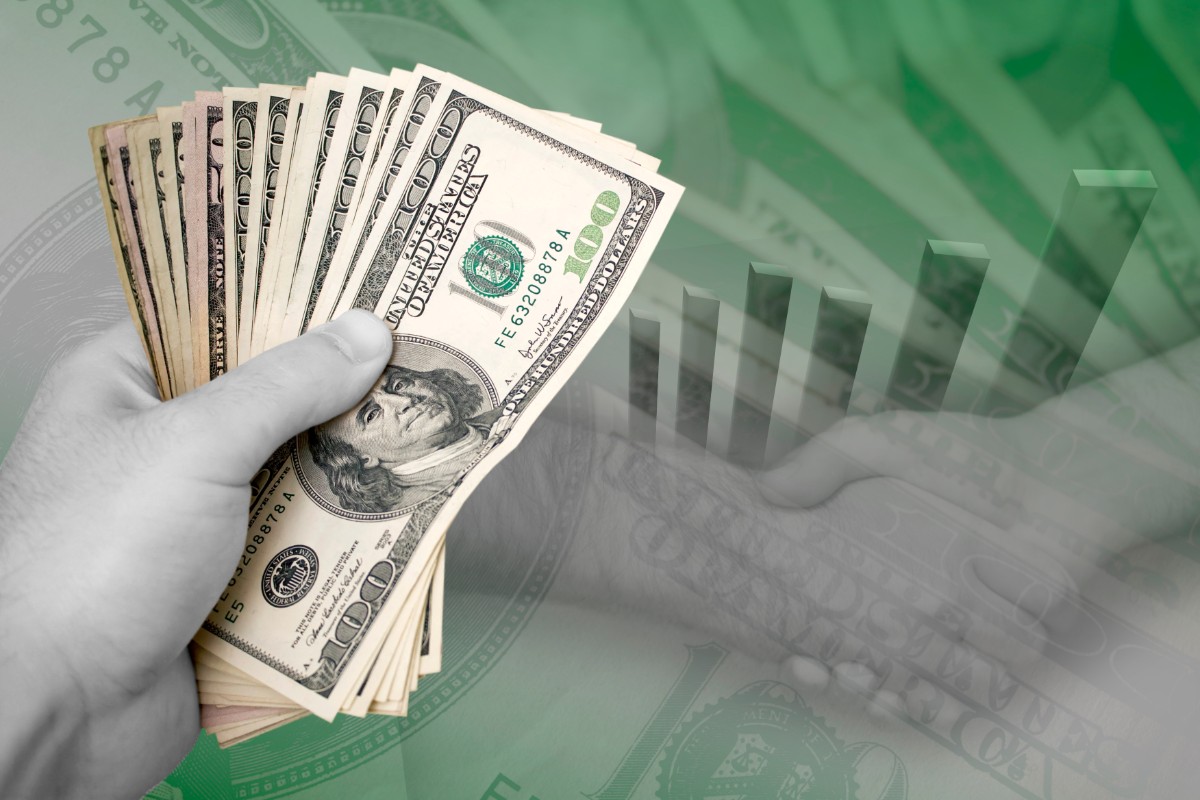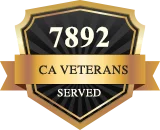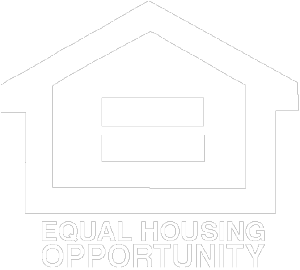Cash-Out VA Refinance vs. An Equity Line

The pros and cons of financing options to improve your home or consolidate your debts.

Peter Van Brady
Founder of SoCal VA Homes
Author: Avoiding Mistakes & Crushing Your Deals Using Your VA Loan
On this page, you'll discover many valuable comparisons of different scenarios Veterans face when considering accessing their home equity.
A VA Cash Out Refinance Loan can be the way to go, but it's not always the best option. Let's look...
Let’s say you have a set of home improvement goals, but you don't have the needed cash on hand, so you decide to borrow the money. Or perhaps you want cash out of your home to consolidate your debts, or for any other reason, but you’re not sure what your best options are, and you’re just not certain of how to go about it. Since you need to borrow the money, your first objective should be how to borrow it at the lowest cost. Let’s jump right into some examples…
Let's say that you received a loan to purchase your home at a rate of 3.25% and you never refinanced. Perhaps you've built up some equity, and a new loan rate of 4.50% is currently available. Do you want to take cash out on a new loan and replace the entire loan balance of your old loan at the 3.25% rate with a new 4.50% rate? Well, the math on that is going to be pretty easy. Depending on how big your 3.25% loan balance is in relation to how much cash you want to get out and the resulting new loan balance, you'll do the math and arrive at a decision.

The larger your cash out needs are, and the less appealing the alternative financing options to meet your needs appear, the more likely you are to replace the old, lower rate with a higher one. You may even want to factor in the tax deductions* if you want to go down that road, and ultimately you’ll come up with an answer of whether you think a new VA cash-out refinance is a good idea or not. *Consult your tax professional.
Here’s an example of a bad idea. You financed a home purchase for $350,000 and you had a 3.25% rate, and all you want is $20,000 to do some things around the house (e.g., a new patio, fix up the kitchen, etc.). Most people aren't going to replace a 3.25% rate on a $350,000 loan with a new loan at a rate of 4.50% just because they want an extra $20,000. That would be poor money management. You'd really be increasing your interest rate on all your debt for very little benefit. You would naturally examine other financing alternatives to meet your needs of borrowing the $20,000.

Let’s look at a different example. Maybe you bought the home long ago and it’s now worth 400,000. Right now your loan balance is $150,000 at a rate of 4.00%, and you have a really aggressive home improvement project where you need $250,000 and literally want to take the maximum out on your VA loan amount to the entire value of your home. In this example, you're not going to worry so much about replacing an old, lower interest rate of 4.00% with a new rate of 4.50%, because the difference in rate is minimal, and you're dramatically increasing the size of your outstanding debt. And your other alternatives to obtaining the new $250,000 may look less appealing than using your VA benefit.
Equity, credit, and income are elements that are evaluated in every mortgage loan underwriting decision, including VA loans, equity lines and other home improvement loans.
Each element is defined by its own specific characteristics, such as how much equity you have (in your home) or how superior your credit is, or the amount of your income in relation to all of your prospective debt payments and other monthly expenses you may be obligated to. The combination of all of these elements together will dictate your product choices in this decision as they also dictate an underwriter’s willingness to approve your loan application.
Equity is defined as the difference between the value of your home and your loan balance. The equity, current loan amount, and your current rate are going to dictate in nearly all cases, how you're going to make your decision – whether you want to use a VA home loan to optimize getting all your equity out or another avenue. The distinct advantage that VA financing offers, in most cases, is that lenders who make VA home loans will make new loans all the way to 100% of the appraised value of the home. Other conventional mortgage options have limitations, typically to 80% of the appraised value of the home. As in the last example, the VA cash-out option to 100% of property value can be a distinct advantage which will influence your decision of which product to choose. Other alternatives such as home equity lines of credit may limit your loan amount and not meet your cash needs.


Credit can be a major factor in these decisions. This can be the case for ALL financing alternatives from mortgage loans to secured home improvement loans (especially solar contracts) to unsecured options such as credit cards. When you're borrowing money and pulling cash out from your home’s equity, especially using a VA home loan, a VA loan underwriter will carefully evaluate your credit. To achieve success with this new VA home loan request, you’ll need to have acceptable credit. If your credit risk scores are below 600, your offers for a cash-out VA refinance are going to be almost non-existent. You have to obtain a mortgage credit report and discover what your credit profile looks like. Do you qualify for a VA cash-out loan? Is it an option? In some cases, unfortunately the answer is going to be a “no." Once you've determined that your credit will allow you to qualify, you can consider whether a cash-out VA loan is the most valuable option to meet your needs.
Your income will be reviewed as well. Does your income allow you to qualify? An underwriter will ask you for proof of your income (W2s, paystubs, etc.,) People go through life and do have changes in their circumstances, especially changes in income. In some cases, you might not qualify because your income isn’t sufficient for the new loan amount request. If a VA cash-out refinance is to be one of your financing alternatives, those three fundamentals of equity, credit and income really have to be addressed first.


Your disability rating can be a big factor in arriving at your decision to choose a VA cash-out loan. Of course no one really wants to be in the position of receiving disability benefits, but if your disability rating is at least 10%, you have a tremendous advantage when using your VA benefit, as relates to the VA cash-out home loan. The current VA funding fee for a cash-out home loan is 3.3% of the loan amount, added on top of the base VA loan amount. But when you are receiving disability payments, you are exempt from that funding fee. That cost advantage is huge when considering a VA cash-out loan. Loans can be structured with or without closing costs, depending on the rate you choose, and you SHOULD be offered a choice. If any costs exist on your VA cash-out refinance home loan, they are going to be added to the loan balance. This includes the VA funding fee. If you are disability rated, then you are exempt from paying the VA funding fee. That means much more money is available for your cash out needs, compared to those borrowers who ARE paying the VA funding fee, added to their loan balance. Ultimately, the cost to access the amount of money that you need is going to be a big decision making factor.
Another financing alternative would be a home equity line of credit, or a revolving home equity line. This home loan product will have many of the same underwriting requirements when reviewing equity, credit and income as the VA cash-out home loan does. An advantage of the home equity line of credit (HELOC) is often its cost. Typically when obtaining a revolving home equity line of credit, the transaction is free of closing costs. A disadvantage can be that the credit score requirements can often be high, and substantial amounts of remaining equity can be required. Another disadvantage might be the adjustable rates that are offered. Let’s examine…
Let's say you have lots of equity and you have a VA home loan for $300,000 and a property worth $400,000, and you only want another $20,000 for home improvements. To get a $20,000 equity loan would mean your total outstanding combined loan balances would be $300,000 plus $20,000 equaling $320,000 combined, and that would be 80% of the value of your home. If you have good credit and enough income, you're going to get that home equity line for free from most commercial banks and credit unions. That's always going to be the cheapest way to initially borrow from your home, if you can.
Often there are VA borrowers in our market who have built some equity. They've accumulated say…10% to 20% equity, primarily through home value appreciation, and they want to access all their equity. Since they haven't built 30% or 40% equity, it’s very, very difficult to access enough equity to meet their goals with a home equity line of credit. The banks and credit unions won't let you access 100% of the equity in your home like a VA cash-out home loan will allow. It’s important to consider the following factors as you evaluate your choices for borrowing. Review how much money you really need, vs. what it's going to cost, vs. what your current VA loan rate and loan balance, are vs. your available equity.
Once you've exhausted your possibilities of a VA cash-out home loan on your first mortgage or a home equity line of credit as a second mortgage, you may want to consider a home improvement loan or installment debt. If you are looking at home improvement projects, these can be reasonable financing options.

You may be getting offers from home improvement contractors for installment financing, especially solar system providers. Be very cautious regarding “Hero” (Pace) loans connected to your tax assessment. Currently, nearly all lenders will not finance a first mortgage if one of these loans is attached to your tax assessment. This will prevent buyers from obtaining a loan to purchase your home, if you decide to sell. It will also prevent you from refinancing your VA home loan.
Additionally, I would really caution you to stay away from the “finance companies.” I won’t name companies here, but their predecessors were Household Finance and Beneficial Finance. “HFC” and “Benne”, as they were called, built huge businesses by making small, very high rate second mortgages, and then they went door to door every month collecting payments! Finance companies could be described as any alternative lender, other than traditional banks, credit unions, and mortgage companies. They would typically make loans under $50,000.
From my observation and experience, just the appearance of finance companies on your credit profile is going to depress your credit risk scores overtime. It’s a difficult claim to prove, since the Fair Isaac Company will never release the guts of the FICO score(s) formula. If they did, consumers would manipulate their behavior to produce improved scores, thereby rendering the scoring model useless. FICO scores dominate credit decisions and loan pricing, so they are VERY useful and effective in evaluating consumers’ likelihood of repaying their debts.

Fair Isaac Company developed the science of credit modeling to determine the probability of default on any particular loan. Their product, your FICO credit risk score, is the result of a proprietary, formulaic review of dozens of your personal financial variables to arrive at an educated guess regarding your ability to repay debts in a timely manner. One of the variables in the formula, which has input into your credit risk scores, examines what kind of credit you have applied for and been approved for in the past. In my experience, people who tend to have lower credit risk scores will often take advantage of credit offers from companies like Roadloans.com, Capitol One, or other companies that market to and service consumers at the lower end of the score spectrum. These types of companies are like the modern day Household Finance or Beneficial Finance. We see finance companies on credit reports somewhat frequently, and again, they are typically associated with lower credit risk score borrowers.
There's certainly a need for clients in that credit profile to access credit offerings, but when clients take frequent advantage of these credit offers over time, they almost prevent themselves from raising their credit scores over time. The mere existence of one or more of these finance companies on someone’s credit report seems to be profiled by the FICO model and ultimately aides in keeping this profile of consumer’s scores depressed. Again, this is just an observation from twenty four years of experience in the loan business, most of which has been dominated by credit risk scoring.
I really encourage clients to stay away from the finance companies and installment debt offered by any companies except banks and credit unions. These credit offerings from finance companies will typically fit in a situation where there's little or no equity in your property. In a scenario where you might need $5,000 - $20,000, an unsecured installment contract may work best. And when ALL THOSE OTHER options are exhausted, credit cards are going to be your only remaining option as it pertains to trying to get home improvement projects done.
In conclusion, if you can qualify for it, if you have enough equity, if your credit score is high enough, if you don't want all of the equity out of your property, your home equity line of credit is going to be your best bet. It's typically cost-free. It's quick. It's revolving so you can draw on it and pay it down, again and again. However, if you are you're receiving disability from the VA, and therefore are exempt from the VA funding fee, your VA cash-out refinance is a fantastic way to borrow money, as long as the new rate isn't too much higher than your current rate. I'm a big fan of borrowing “cheap money” if you're going to utilize it judiciously and responsibly. If you are not exempt, and you do have to pay the VA funding fee, know that a new loan at a slightly higher than market rate can cover a substantial amount of the closing costs, including some or all of the VA funding fee. As an example, if available interest rates are 4.00% – 5.00% for VA loans, the higher 5.00% rate would offer the opportunity to cover all of the closing costs and absorb nearly all of the VA funding fee expense. The higher rate could very well be a good option because nearly all of the closing costs would be paid for by the lender, leaving more cash out for you!
For assistance on determining which option is best for you, let So Cal VA Homes help. Call us at (949) 268-7742.








